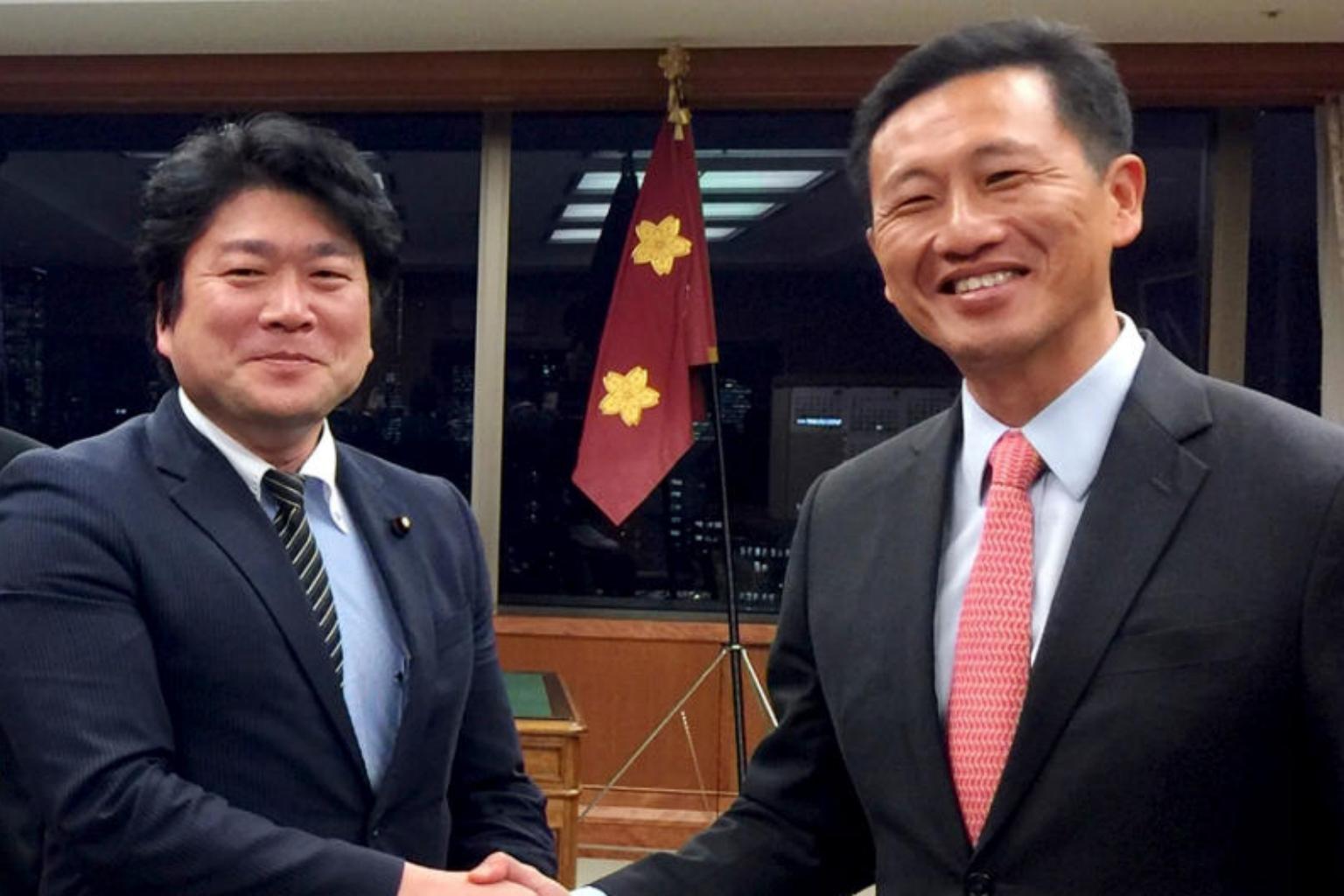Fast-ageing Japan's embrace of technology and robotics a case study for Singapore: Ong Ye Kung
Sign up now: Get insights on Asia's fast-moving developments

Second Minister for Defence Mr Ong Ye Kung (right) meets Japanese State Minister of Defense Mr Tomohiro Yamamoto (left) at the Japan Ministry of Defense on Nov 28, 2017.
PHOTO: MINDEF
Follow topic:
TOKYO - Fast-ageing Japan is embracing technology and robotics in ways that Singapore can learn from in its Smart Nation push, Education Minister (Higher Education and Skills) Ong Ye Kung has said.
Speaking to The Straits Times in Tokyo on Wednesday (Nov 29), Mr Ong said that Japan is a prime example of how growing old does not necessarily mean the loss of dynamism or drive.
He said that so long as fiscal balance is assured given the higher expected healthcare expenditures, the rest depended on the mind and spirit.
"Do you want to stay young or act old?" he said.
Mr Ong, who is also Second Minister for Defence, is on a five-day visit ending Thursday (Nov 30) at the invitation of Japanese Foreign Minister Taro Kono. During his trip, he met Japanese State Minister of Defence Tomohiro Yamamoto, with whom he reaffirmed the warm and friendly defence ties between the two countries.
He also met Japanese Education Minister, Yoshimasa Hayashi, Tokyo Governor Yuriko Koike, as well as visited several companies such as Kawada Robotics and NEC Space Systems.
The Japanese economy has recorded seven straight quarters of expansion in its longest positive streak in two decades, and Mr Ong said this was a sign that the country had pulled itself out of its economic rut.
And while the Japanese have been labelled as insular, he observed that they were "on the go, dynamic, prepared to embrace and leverage on technology".
In this vein, he said that the traditional assumption that an ageing population would become slower and unwilling to learn or innovate did not necessarily hold water.
As Singapore embarks on its Smart Nation push, it should also relook the societal definition for 'success'.
On this front, Singapore could look up to Japan in its emphasis on skills mastery, which Mr Ong said has gone beyond the traditional definition of "little intricate things".
Much like how Japan's artisans put great care in their craft - "right down to each piece of sushi, glassware or kimono" - Singapore, too, can emphasise skills upgrading in professional trades, Mr Ong said.
And this would include such roles in medical care, social work, digital animation, journalism, acting, "and even being a politician", he quipped. "Whatever people choose, it must be out of passion, and once this is gone, there is no craftsmanship, no skills mastery."
And as part of this shift towards more holistic education, MrOng said that traditional norms of how employers look at hiring, promotion and appraisal systems must change.
This also applies to the relentless emphasis on university rankings, which Mr Ong stressed must not be prioritised over the larger societal mission to ready the young for the world.
Singapore and Japan share very close people-to-people ties, with Mr Ong noting that Mr Kono had once lived in Singapore as an employee at Fuji Xerox.
This comfortable relationship also extends to the strategic level, with both nations sharing a common view on a free and open Indo-Pacific, said Mr Ong, who is also Second Minister for Defence.
Japan has stepped up to take the lead in regional free trade, he noted, in a far cry from 2000 when the country was just entering its first bilateral free trade pact with Singapore.
Mr Ong was involved in discussions then as a trade negotiator, and noted the cautious approach it took towards politically-sensitive issues like agriculture.
"But now they are really taking on that persuasion and leadership role," he said, referring to Japan's role among the remaining 11 countries in the revised Trans-Pacific Partnership (TPP) after the United States pulled out.
And while the formation of a free and open region should not exclude China, given its economic strength, Mr Ong said: "In terms of regional architecture, it should stay open and inclusive - be it Australia, New Zealand, India, the US, Europe, and all major powers of the world."
He added: "The more we can engage, the more stable and prosperous the region will be. Because of this strategic congruence that has always been undertaken, it has always been comfortable working with Japan on security and defence matters."

